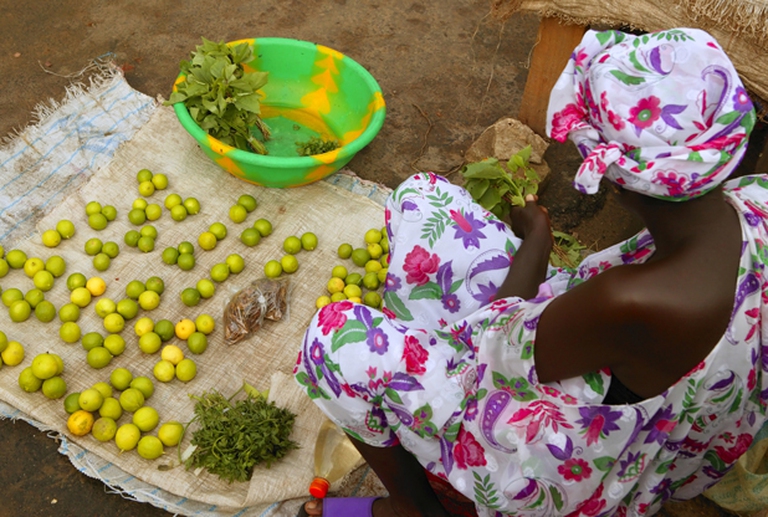
As per tradition after 12 years India held Mahakumbh, the world’s largest spiritual congregation that has been attracting pilgrims from across the globe.
Eating large amounts of fruits, vegetables, legumes, nuts and seeds, fish and wholegrains is obviously a healthy habit. But people don’t have such a balanced diet in every part of the world. There are places with a geography, climate and food culture that foster a healthy diet, others that mostly eat ready and processed meals
Eating large amounts of fruits, vegetables, legumes, nuts and seeds, fish and wholegrains is obviously a healthy habit. But people don’t have such a balanced diet in every part of the world. There are places with a geography, climate and food culture that foster a healthy diet, others that mostly eat ready and processed meals containing unhealthy ingredients.

A scientific study conducted by the Medical Research Council with the contribution of the Bill&Melinda Gates Foundation assessed the world’s different quality of diet and found a positive global increase in the consumption of healthy foods but a more rapid rise in the intake of junk food.
The study, published in The Lancet Global Health, used national data covering around 90 percent of the global population and analysed food choices between 1990 and 2010 as well as three diet patterns. The first was based on ten healthy food items: fruits, beans and legumes, nuts and seeds, wholegrains, milk, polyunsaturated fatty acids, fish, foods rich in omega-3s and dietary fibre. The second, on seven unhealthy food items: red meat, processed meat, sugary drinks, saturated fat, trans fat, dietary cholesterol and sodium. The third, on all seventeen food groups. These patterns were judged at a later stage by researchers who gave a score between 0 (for unhealthier diets) and 100 (for healthier diets).

“Dietary quality among men and women in 187 countries in 1990 and 2010: a systematic assessment”: this was the name of the study that revealed that high-income nations such as United States, Canada, Western Europe – Italy included –, Australia and New Zealand have rich diets if we consider the variety of healthy foods they have available, but poor ones if we consider the quantity of unhealthy food items eaten. In these countries food abundance allows people to consume good but also bad diets, because of a higher intake of junk rather than healthy food. China and India didn’t improve their diets over the past twenty years, while Belgium, Hungary and some republics of the former Soviet Union including Uzbekistan, Turkmenistan and Kyrgyzstan, scored the lowest overall. The countries with the best diets worldwide are Chad, Mali, Sierra Leone and Somalia.

During the assessment phase of age and sex, researchers found that old people follow better diets than young people and women than men. The team of researchers led by Dr Fumiaki Imamura of the University of Cambridge hope that this rank will help nations improve their diets and reduce non-communicable diseases that, according to the above mentioned study, account for 75 percent of all deaths by 2020.
Countries with the healthiest diet
Chad
Sierra Leone
Mali
Gambia
Uganda
Ghana
Ivory Coast
Senegal
Israel
Somalia
Countries with the least healthy diets
Armenia
Hungary
Belgium
Czech Republic
Kazakhstan
Belarus
Argentina
Turkmenistan
Mongolia
Slovakia
Siamo anche su WhatsApp. Segui il canale ufficiale LifeGate per restare aggiornata, aggiornato sulle ultime notizie e sulle nostre attività.
![]()
Quest'opera è distribuita con Licenza Creative Commons Attribuzione - Non commerciale - Non opere derivate 4.0 Internazionale.
As per tradition after 12 years India held Mahakumbh, the world’s largest spiritual congregation that has been attracting pilgrims from across the globe.
Obesity is a worldwide widespread disease. Such condition occurs when the intake of calories exceeds the amount of calories burnt. Obesity is due by poor nutrional education, sedentary lifestyle and other causes, such as genetic predisposition, family environment and social and economic conditions. Obese or overweight children do not necessarily eat too much, but they
Peter Menzel and Faith D’Aluisi, husband and wife, travelled the world documenting eating habits of people of all classes, in different countries. They photographed people with their habitual meal, and their journey became a photographic book entitled What I eat – Around the World in 80 diets. The two photographers didn’t only take amazing pictures:
Workers in tea gardens of West Bengal, India, that produces Ctc tea for domestic consumption complain that they have been devoid of basic facilities while political parties make hollow promises during every elections which are never fulfilled.
India is in the middle of the elections, but sadly none of the politicians have uttered a word on man-animal conflict that has been devouring several lives every year.
Together with Made in Nature, we explored at the Macfrut fair in Rimini, the Italian organic fruit and vegetable market and its key players.
Made in Nature is a project funded by the European Union and Cso Italy to promote the benefits of organic food consumption for our health and that of the environment.
Manipur, a state in north-east India, is still reeling under the tremors of violence that broke out last year devouring lives and paralyzing the economy.
The United Kingdom have voted to support Hunting trophies bill, a controversial bill that aims at prohibits importing hunting trophies from thousands of endangered animal body parts of lions, elephant and giraffe’s into the U.K.







